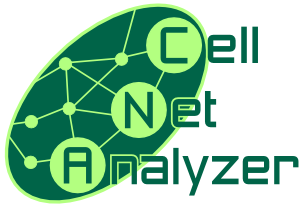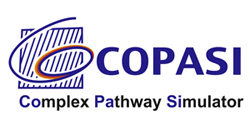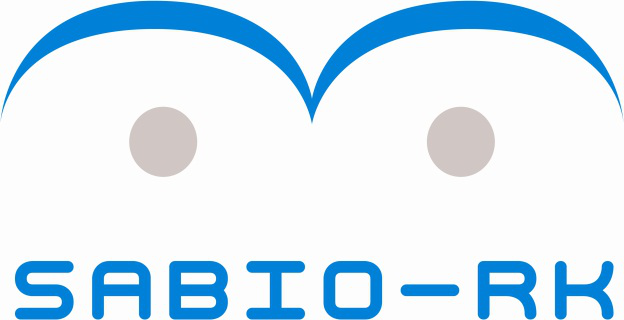A team of seasoned instructors, namely Pavlos S. Bekiaris, Axel von Kamp, Steffen Klamt from MPI Magdeburg, Frank T. Bergmann, Ursula Kummer from Heidelberg University, and Wolfgang Müller, Maja Rey, Andreas Weidemann, and Ulrike Wittig from HITS (de.NBI-SysBio), come together to lead the 'Tools for Systems Biology Modeling and Data Exchange' de.NBI training course. With their combined expertise spanning various domains of systems biology and bioinformatics, this distinguished team is set to guide participants through an immersive journey into the world of computational modeling and data exchange. Their extensive knowledge and practical insights promise to equip young researchers with valuable skills and insights to excel in the ever-evolving field of bioinformatics and systems biology.
In this interview for the de.NBI blog, the instructors explain the curriculum of the upcoming de.NBI training course Tools for Systems biology modeling and data exchange: CellNetAnalyzer, COPASI, SABIO-RK, FAIRDOMHub/SEEK 2023
Introduction: The 'Tools for Systems Biology Modeling and Data Exchange' training course stands as a significant event in the field of bioinformatics and systems biology. In an era where biology and computational science intersect, this course offers a valuable opportunity for young researchers to explore the world of systems biology.
Led by an experienced team of instructors, the course spans three days and covers fundamental concepts in modeling biochemical networks and data management following the FAIR principles. This practical training equips attendees with essential skills needed in bioinformatics.
The significance of this course lies in its ability to bridge theory and practice, providing participants with hands-on experience and preparing them for careers in bioinformatics. It's a stepping stone for those interested in computational modeling and data exchange, fields that are becoming increasingly vital in biological research.
In this interview, we chat with the instructors to learn more about the course's objectives and the benefits it offers to aspiring bioinformaticians and systems biologists.
Interview Questions:
- Could you provide some insights into the content covered during the course? What key concepts and tools will participants learn?
- Constraint-based metabolic modelling / Flux Balance Analysis with CellNetAnalyzer and CNApy
- Introduction to kinetic modelling and simulation with COPASI
- Searching, visualizing and exporting kinetic parameters for biochemical reactions in the SABIO-RK database
- Storing, interlinking and publishing data/models in the data management platform FAIRDOM-SEEK
- What are the specific learning goals for attendees during the three days of the course? How will this knowledge benefit their research and careers in systems biology? Are there any prerequisites for participants to get the most out of this course?
Key Concepts:
- Participants will learn how to create / view / analyze models in CNA(py) and COPASI
- Get a brief overview of the Systems Biology Markup Language (SBML)
- Find SBML models in the BioModels Database, review the information contained and simulate those models
- Save created models in SBML format for publication
- Get an introduction to the functionalities of the SABIO-RK database
- Learn how to manage data and models with FAIRDOM-SEEK
This course teaches participants a comprehensive toolkit for systems biology research. COPASI provides a user-friendly platform for model development, simulations, and data analysis, streamlining research processes. CNA(py) empowers researchers to analyze and manipulate constraint-based metabolic networks, aiding in the interpretation and design of these complex systems. SABIO-RK offers a valuable resource for accessing and understanding kinetic data, crucial for modeling and parameter estimation. The data and model management platform FAIRDOM-SEEK allows to collect, interlink and share all relevant data and models for an experiment. By mastering these tools, participants can enhance their research capabilities, gain a competitive edge in the field, and potentially expand their career opportunities in academia, industry, or bioinformatics, making them well-equipped and versatile contributors to systems biology research.
- Can you elaborate on the tools and software that will be introduced and utilized during the training? How do CellNetAnalyzer, COPASI, SABIO-RK, FAIRDOMHub/SEEK contribute to systems biology modeling and data exchange?
- CNA(py): CellNetAnalyzer is a MATLAB package that provides an intuitive way to analyze stoichiometric metabolic models. CNA supports a wide range of COBRA (Constraint-based Reconstruction and Analysis) methods, including basic ones such as Flux Balance Analysis (FBA) and more complex ones such as Minimal Cut Sets (MCS). These methods can be used, for example, to predict possible reaction fluxes and calculate biotechnologically relevant strain designs. CNA also supports common model formats such as SBML, making it easy to interoperate with other packages. A striking feature of CNA is its ability to visualize all analysis results in visual and interactive metabolic maps. In our course, we will also present CNApy, a CNA re-implementation in Python with a more intuitive and sophisticated user interface.
- COPASI: COPASI significantly contributes to systems biology modeling and data exchange by providing a user-friendly platform for creating and simulating complex biochemical network models. It automates model conversion into standard formats like SBML, facilitating seamless data exchange with other systems biology tools and fostering collaboration. COPASI's versatile simulation capabilities, parameter estimation, sensitivity analysis, and a wide range of analysis tools empower researchers to gain insights into biological systems. The software also offers data visualization and export options, enhancing data exchange for further analysis and integration into broader research workflows. In essence, COPASI supports model development, analysis, and interoperability, advancing the field of systems biology.
- SABIO-RK: SABIO-RK (https://sabiork.h-its.org/) is a manually curated database for biochemical reactions and their kinetic properties. The data are mainly manually extracted from scientific literature and prepared in a structured as well as visual format to be searchable and accessible for modelers and experimentalists. SABIO-RK data are annotated to ontologies or controlled vocabularies and interlinked with external standard databases. A new visualization gives a deeper insight into the database content and the distribution of kinetic parameters. Data can be exported in different standard formats like SBML as well automatically accessed via web services.
- FAIRDOMHub/SEEK: FAIRDOMHub (https://fairdomhub.org/) is a freely accessible web platform designed to support the principles of FAIR (Findable, Accessible, Interoperable, and Reusable) research data management. It’s built upon the open source FAIRDOM-SEEK (https://fairdomseek.org/) software for storing, cataloging, sharing and reusing research outcomes. FAIRDOMHub serves as a central hub for individual researchers and collaborative projects to manage and share their data, models, and protocols. The ISA (Investigation, Study, Assay) standard framework supports the organization and description of individual experiments and related research assets. Key components of FAIRDOMHub include data and metadata management, version control, collaboration capabilities, and integration with modeling tools, e.g. JWS online and COPASI.
- What role does data management and adherence to the FAIR principles play in this course?
FAIRness plays an important role in the modeling tools. Through their use of SBML, they are well-prepared for well-annotated data that is interoperable, findable, and reusable. SBML models can also be run from within the FAIRDOM-SEEK platform which plays a role in the third day of our tutorial.
The third day of the course will show how the FAIR principles are applied in the SABIO-RK database and the FAIRDOM-SEEK data management platform. The participants will learn about the research data life cycle and the importance of following the FAIR principles and best practices guidelines in research data management. FAIRDOM-SEEK allows to interlink models with their data in one place.
If you are interested in the training course, find more information here:
Registration Link: https://docs.google.com/forms/d/e/1FAIpQLScBXS1LfcZhcO8l2zD0jK7shs-It2_JO8HCde6vyqJ070OaMQ/viewform?usp=sf_link
Course Site:
http://denbi-modsim.de/workshop_11-2023/
Contact Information:
Frank T. Bergmann (
Steffen Klamt (
Ulrike Wittig (




